House of Ninjas Review: Netflix Series Between Ambushes, Shadows, Laughter, A Series Far From The Clichés Of The Genre
Starring: Kento Kaku, Yosuke Eguchi, Tae Kimura
Creator: Dave Boyle
Streaming Platform: Netflix
Filmyhype.com Ratings: 3.5/5 (three and a half stars)
From February 15th, House of Ninjas (original title Shinobi no Ie: House of Ninjas), a new eight-episode series created by Dave Boyle and based on a story by Yoshiaki Murao, is available on Netflix. A product capable of combining – as per the tradition of the genre – family drama and comedy, action and spy story, staging the vicissitudes of a dysfunctional family of ninjas (sorry, shinobi) committed to juggling cover jobs, mysterious threats, and difficult grief to overcome. By following a long-tested formula, i.e. mixing different tones and genres to create a hybrid capable of uniting opposite imaginaries, House of Ninjas thus juggles within the contemporary offer of similar products, managing to maintain its specificity, even in the face of a direction that is not always engaging or aesthetically appealing. It is a solid and well-made product that prefers a more international flavor to a truly Japanese taste, with all the strengths and weaknesses that this entails.
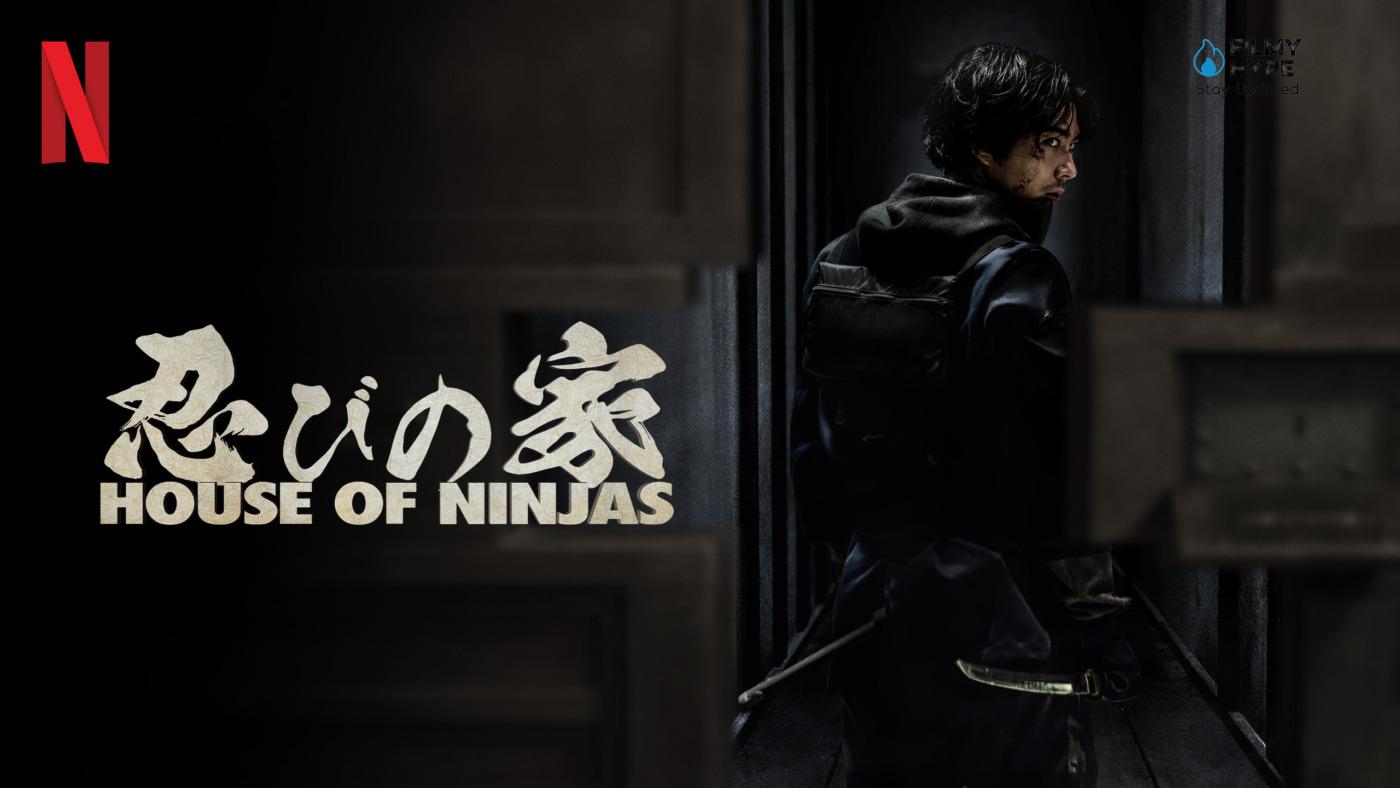
House of Ninjas on Netflix is a truly curious product, one of those series that you either love or hate, but which certainly do not leave you indifferent, this is by the audacity and ability to amaze and entertain which it counterbalances a fairly labyrinthine plot, which takes a while to get together and to make you understand its nature. Fights, mysteries, a deconstruction of the Ninja movie, and criticism of Japanese society, particularly the traditional family dimension, are the basis of this adventure between masks, swords, humor, and acrobatics. The vision of the show in eight episodes (about 52 minutes each) signed by the showrunner will, however, end up dissolving the doubts, sweeping away with them all the load of prejudices and skepticism. Subscribers to the Stars and Stripes platform seem to have openly expressed this by projecting the series to the top of the weekly top ten. We just have to see how long he will be able to maintain a position in the ranking above.
House of Ninjas Review: The Story Plot
Ninjas in Japan no longer exists. Or rather, only one family remained standing, that of the Tawara. This has happened since, in a battle to the death, she managed to defeat the fearsome rival Fuma clan. A victory paid dearly with the death of the eldest son Gaku (Kengo Kora), which led the rest of the family to hang up their shuriken and forget their glorious past as shinobi. But, six years later, the work in the family distillery, used for generations as a cover, is at risk, the young Nagi (Aju Makita) does everything not to give up her ninja skills, her brother Haru (Kento Kaku) he continues to torment himself over what happened years before and Soichi (Yosuke Eguchi) and his wife Yoko (Tae Kimura), who is struggling with life as a housewife, no longer seem as close-knit as they once were.
This situation is destined to worsen further when the BNM (Bureau of Ninja Management) informs us that the Fuma has returned stronger and more vengeful than ever. House of Ninjas takes us inside the strange Tawara family, essentially the last Japanese family of Ninjas existing in Japan, however, at the request of the head of the family Soichi (Yosuke Eguchi), has now decided to hang up their swords and grappling hooks, so to speak, after the death of the firstborn. Haru (Kento Kaku), the second son, however, doesn’t want to have to work in the sake factory with which his father tried to create an alternative to the path of the shinobi. Lonely, almost misanthropic, his only occasional companion is Karen (Riho Yoshioka), a girl who often has dinner with him after the work shift. To disturb this monotony, the return of the dangerous Fuma, a rival clan of bloodthirsty and very dangerous Ninjas, seemed to have disappeared for some time.
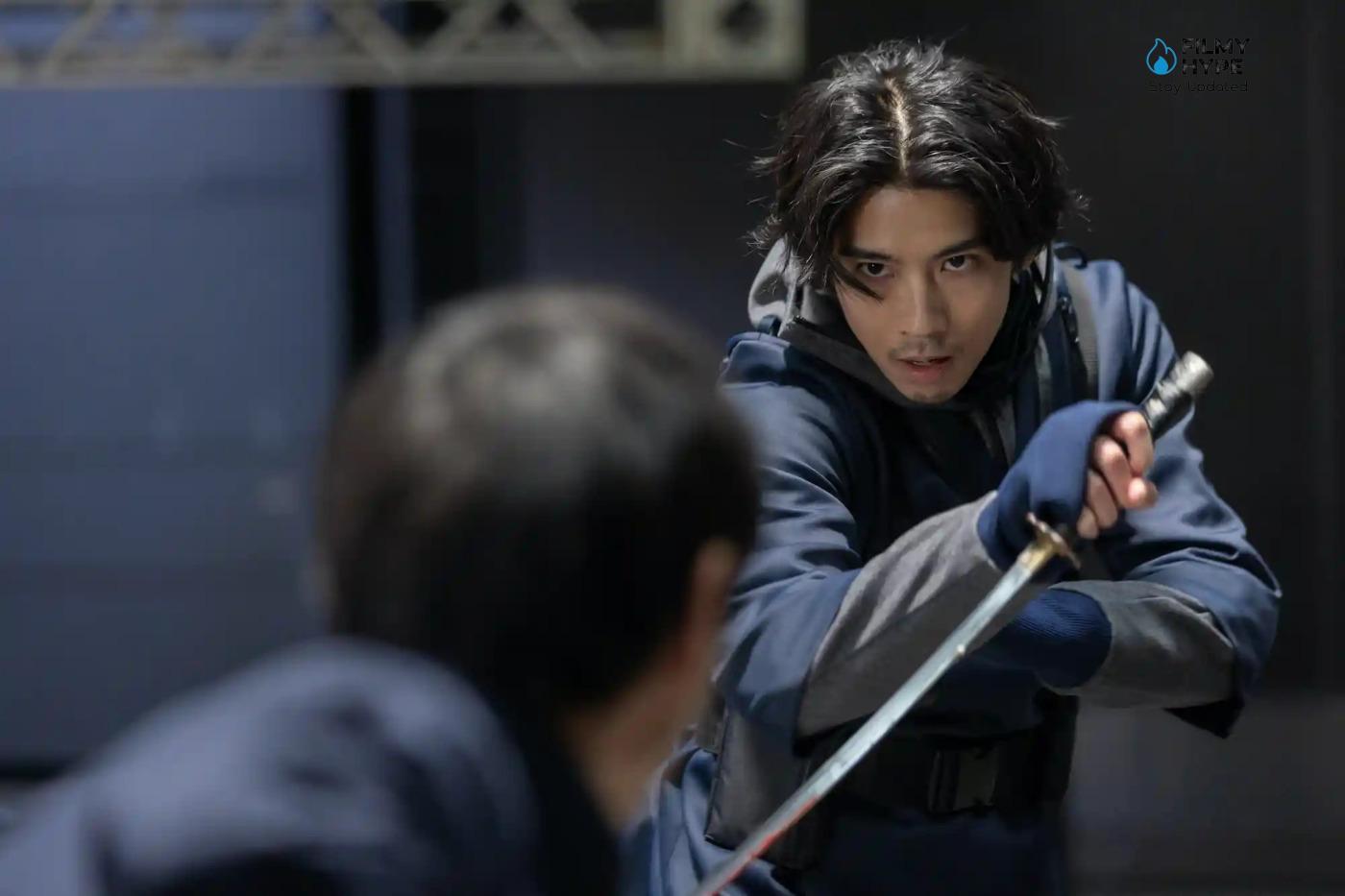
Soichi doesn’t want to get involved, even when the Ninja Management Bureau shows up, he refuses to let his family go back on a war footing. But in short, he will have to accept a simple fact: in addition to Haru, the other members of the family also feel that they lead a life that is a lie, in which the arts of which they are masters are hidden and mortified instead of being put at the service of Japan and its inhabitants. House of Ninjas certainly has many unexpected ingredients for those hoping for a massacre that would bring back to life what a cult-like Ninja Assassin was 15 years ago. Here, however, the register chosen is halfway between the family sit-com and the martial action, with comic inserts in which the mockery of a society, the Japanese one, finds its way where bureaucracy, stringent rules, and mental rigidity are enemies as dangerous as the more treacherous than ninjas.
In the end, everything resembles a genre operation with a bittersweet tone, given that laughter and parody aside, the themes of violence and guilt remain stable. Excellent direction, with incredibly well-made action scenes, House of Ninjas perhaps suffers from an excess of manners, from a desire to be too light-hearted. However, you cannot deny the enormous attention to detail, and the ability to make each character distinguishable, unique, and also quite in-depth. There is no shortage of references to the Ninjas of cinema and animation, indeed the series often plays on this, even though it cannot claim the caliber of a masterpiece like Blu Eye Samurai.
House of Ninjas Review and Analysis
How the Tawara will restore order in the country and their own lives is left to the vision, a pity that this lasts much longer than expected, and the real narrative and dramaturgical needs of the story. If the individual characters are well delineated, with each member of the family finding themselves struggling against their will with the weight of their uncomfortable inheritance and with the still open wounds of a painful past, on the other hand, the horizontal line of the story is dilated excessively in the phase of writing, filled as it is with absolutely futile digressions and parentheses that produce an accumulation of minutes. This is to say that of the eight total episodes that make up House of Ninjas, half would probably have been enough. A greater concentration of events would certainly have benefited enjoyment, given a faster pace, and thus increased the level of spectator involvement. The same one who can taste with his eyes what is the highlight of the menu offered by the American director and his crew, i.e. the action scenes declined in a martial key.
Excellently crafted scenes like those in the first and last episode reflect the extent of the choreographic quality and the level of spectacularity of the show, it’s a shame that these too are numerically lower than the dosage required for an action genre product. American showrunner and director Dave Boyle revisits the myth and tradition of the ninja in a spectacular action-mystery series set in contemporary Japan that intertwines family drama and thriller. The action scenes, the cool performances, and the packaging are the strong points of a show that combines business with pleasure, also addressing universal themes such as loss, connections, and redemption, but erring on the side of verbosity. Too many eight episodes compared to the real narrative and dramaturgical needs, with an excessive dilation of the timeline which wastes the pace.
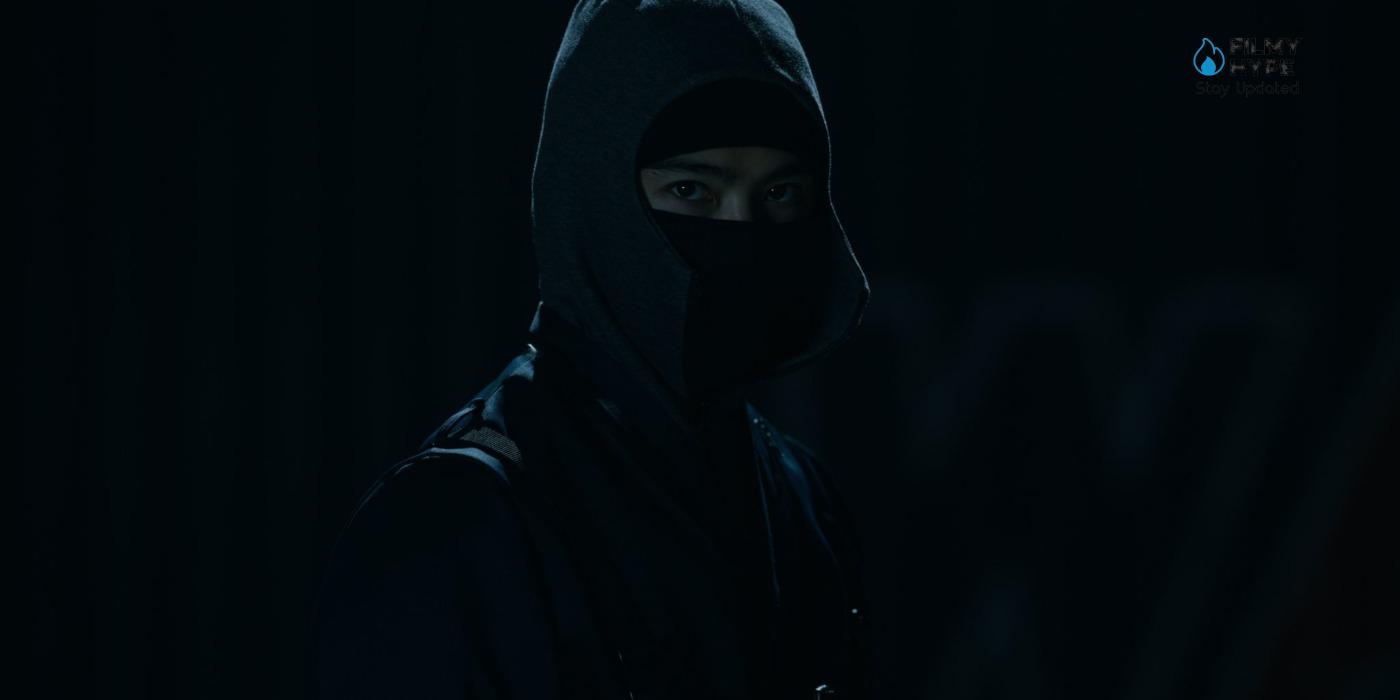
House of Ninjas is a particular series, that asks for a certain amount of patience from the viewer because while we follow Haru, his indecision in embracing all the dictates that every shinobi must make his own, while we try to understand something in these feuds, in this enemy that moves in the shadows, the narrative engine takes a little while to get going. From many points of view, House of Ninjas can certainly be considered as a sort of hybrid work, since the tradition of martial arts cinema made in Japan, the one that launched Sonny Chiba, unlike the Chinese one is characterized by a high content of violence, darker tones and the theme of revenge as a driving thread. In parallel, however, we find ourselves faced with very Western, very modern aesthetics, but also semantics. We are far from parody, but close to recovery, with references to the world created by John Wick, who recently returned to Prime Video with the series The Continental.
There is particular work in the atmosphere, which often digresses towards unusual horizons such as training films, comedies and spy stories. An interesting element is the music, all purely Western, so a sort of hybrid component is often embraced, where humor, but even the tradition of Jackie Chan’s films, mix with more robust action. House of Ninjas perhaps takes some excessive license in trying to portray this sort of extended family, where communication is lacking, but it is all functional to talk to us about tradition as a chain of free will in Japanese society, where even today children must account for their desires and dreams to fathers. A reality that we had known in a series like Drops of God.
In the end, the whole is also very effective in its urban narrative component, in the concept of secret identity, which is also a vehicle for that interiority which in Japan is often humiliated. It is difficult to predict if and to what extent this series could be the manifestation of a new oriental creative flow, but it represents a good form of mediation, although if there is ever a handover between the drama and the J drama, this will be my absolute authenticity, of something more than a hybrid operation like this. In any case, House of Ninjas is worth a watch, if only to reconcile you with Netflix, which hasn’t given us any masterpieces lately with the action genre. “Our whole family is normal,” the stubborn Soichi repeats undaunted, while alibis and cover jobs begin to creak around him. After all, the family with a double life dealing with a more or less extraordinary daily life is a subgenre that we have come to know well over the years.
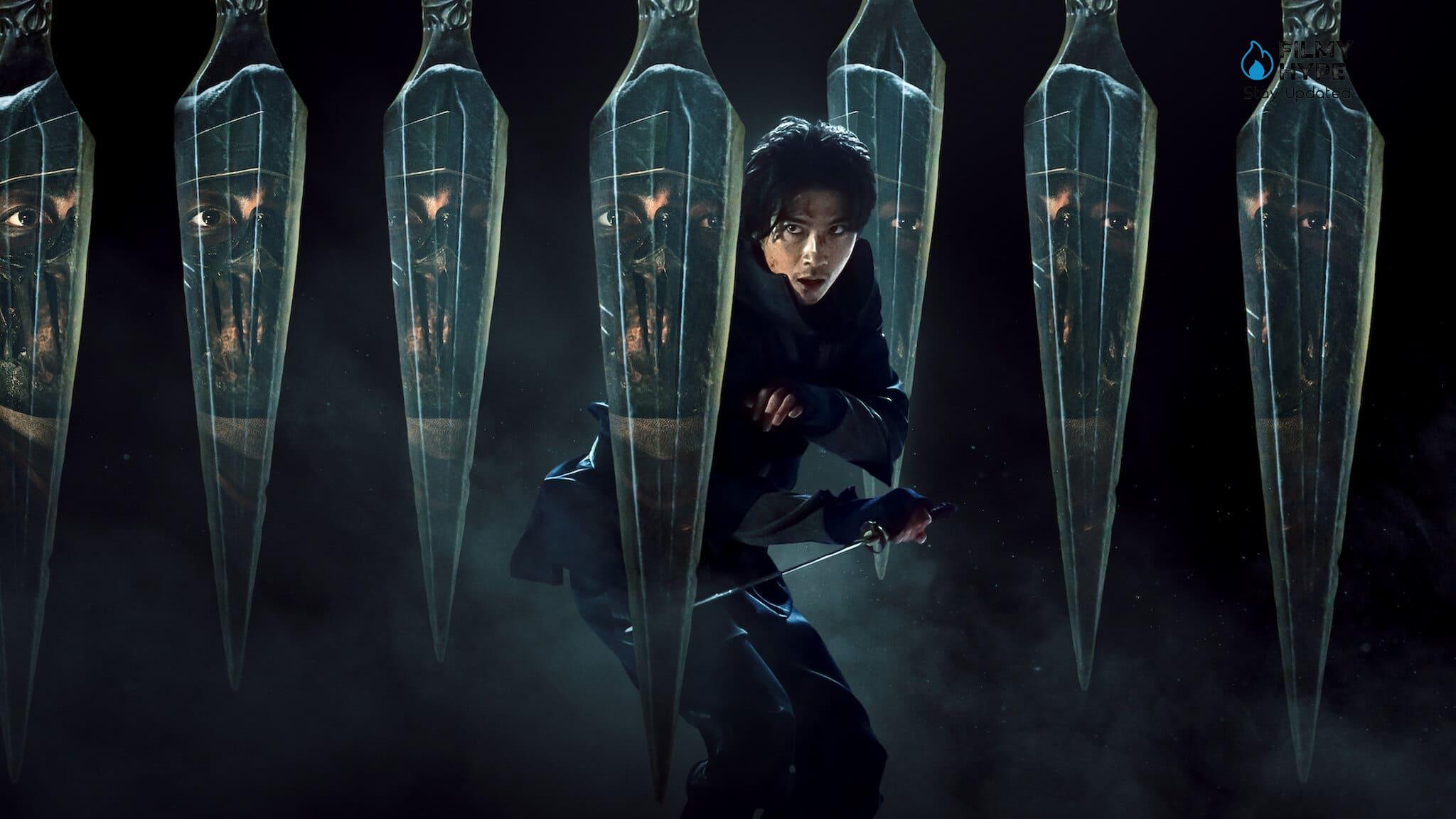
From The Incredibles to Spy Kids, passing through “adult” series such as The Americans, there are quite a few narratives that have placed the conflictual relationship between classic family dynamics and genre cinema at the center of their discussion, between a life made up of the most banal of routines and one littered with international conspiracies and frenetic action. Stories whose main merit has always been that of knowing how to (sometimes, at least) mix different genres and tones, giving life to sometimes irresistible hybrids. House of Ninjas is no exception either, a series that combines martial arts, spy stories, thrillers, family drama, and comedy, fitting in the wake of those Netflix products (the recent The Brothers Sun, for example) capable of attracting the public as transversal as possible.
What the series created by Dave Boyle certainly manages to do is incorporate all the typical elements of the genre into a well-made product, from scenes of violence accompanied by alienating music to the right dose of irony, passing through a story capable of bringing together its different narrative lines into a coherent and believable main plot. In search of that ideal balance between different tones and genres to distribute in its substantial eight episodes. What emerges is thus a story capable of guaranteeing a good level of involvement despite a direction that is not always up to par and not always capable of making the most of the (well-choreographed) fights scattered throughout each episode. Even the comedic tone, clearly present at the beginning (especially in the relationship between Soichi and Yoko and in their work vicissitudes), becomes considerably lost as the story continues, throwing us into an increasingly dark and dangerous world.
Yet, despite its obvious defects, despite a sometimes-fluctuating pace and sometimes well-known developments, House of Ninjas still manages not to be (too) predictable, granting little or nothing to the anime and fantasy imagery that the subject inevitably evoked (no supernatural enemy or Naruto-style techniques, so to speak) and remaining within a “realism” and plausibility capable of distinguishing it from other similar products available on the platform. And if at times the involvement is lacking, leaving us with the belief that a more dynamic and muscular direction would have made the story decidedly more captivating, the series seems to be enough with its characters and the relationships between them to achieve its purpose. A story with a decidedly Western structure (from the times to the dynamics between the characters, passing through the storytelling), which frees itself from any contemplative or proper Japanese moment to speak the international and uniform language of Netflix. For better or for worse.
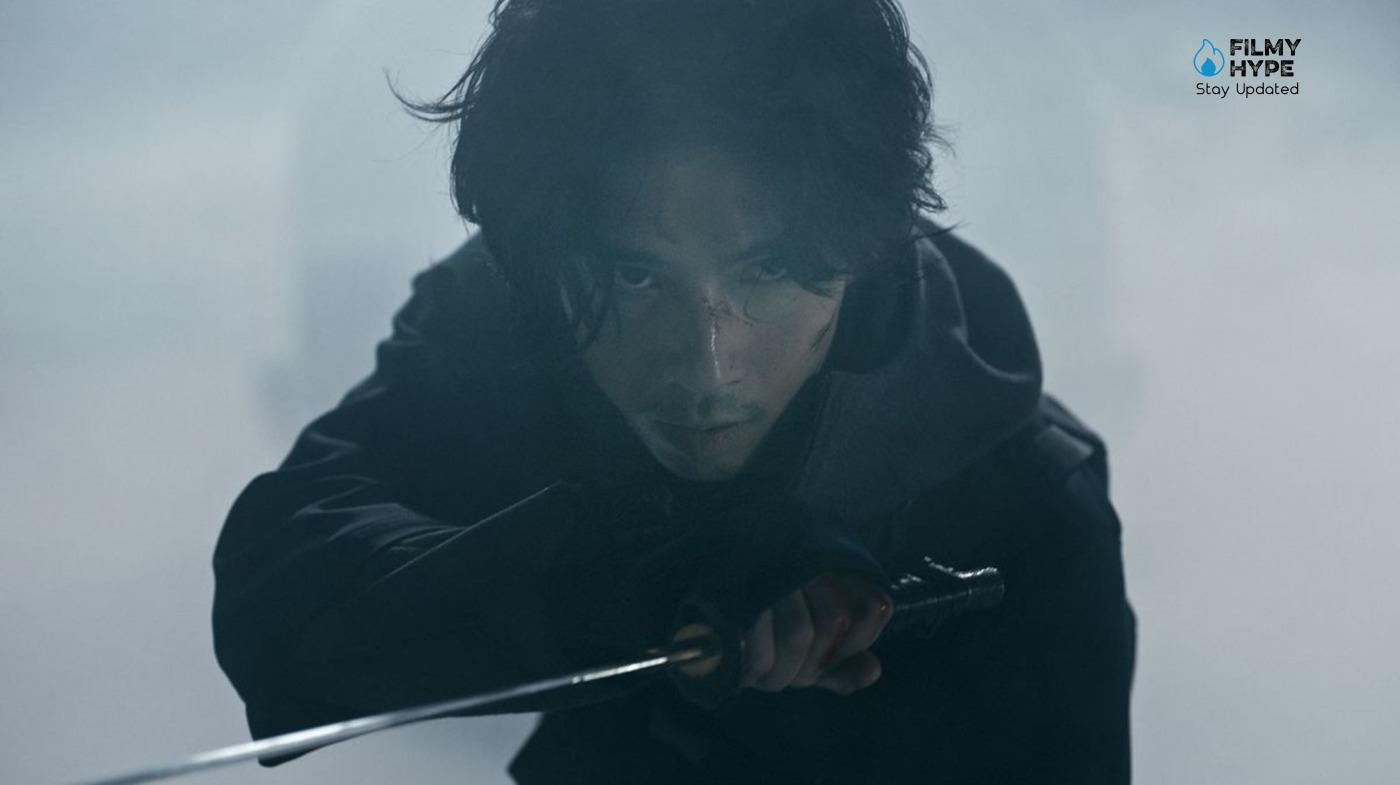
The entire first part of the narrative, focused on the attempt – impossible, it goes without saying – to live like a normal family, is full of surprises and funny moments. Even in action, experienced to the fullest. Episodes 5, 6, and 7 are instead the fair of downtime. Reducing it from 8 to 6 episodes would have been a much more sensible choice and would have eliminated all those unnecessary scenes that linger on unnecessary details, losing sight of the big picture. All in all, between a good start – the best episodes are undoubtedly 3 and 4 – and an ending that leaves an open door, House of Ninjas largely achieve sufficiency. But with some foresight, like those indicated above, it could have been a very, very interesting series. However, the Netflix audience is giving positive feedback all over the world, and in particular in Japan, which does not exclude the creation of a sequel to the story of the Tawara family.
House of Ninjas Review: The Last Words
House of Ninjas is a Japanese series created by an American writer and director, Dave Boyle, working with Asian actors. His films are usually quite popular, but by trying his hand at this Netflix TV series he wanted to exaggerate a little. Ancient legends, historical traditions – from ninjas to the character of Hattori Hanzo, who we all know thanks to Kill Bill – supernatural elements, and the eternal clash between good and bad: all these elements are inserted into a story that we could define as an action-dramedy. The result is unusual, although the general narrative line is very classic. Many different atmospheres alternate, but the liveliness – a little confusing – of the first half of the season then leaves room for an excessively unbalanced alternation of rhythm in the second part. Nonetheless, House of Ninjas is fun and fun to watch. By reducing the episodes from 8 to 6, all the downtime would have been eliminated and the result would have been livelier.






